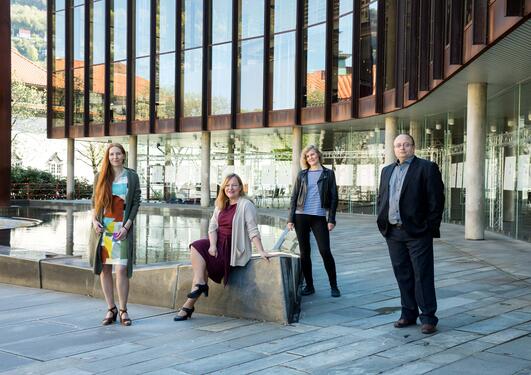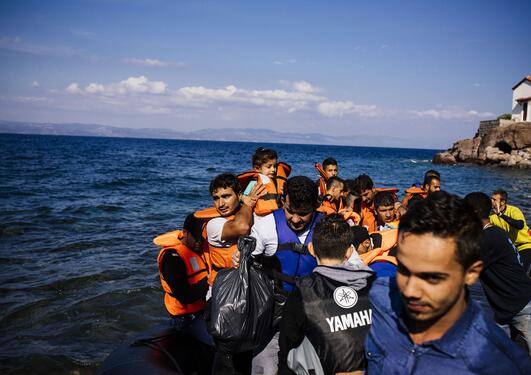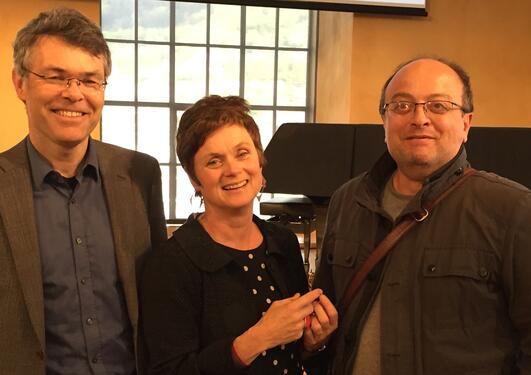UiB awarded large EU project on migration
UiB researcher Hakan G. Sicakkan will lead the EU-funded PROTECT project, which will closely follow the United Nations’ two new global compacts on migration and refugees.

Main content
"This project will enhance our knowledge of how society handles global migration. It will be the first major research project to systematically evaluate the processes of the UN's new global compacts for migration and refugees. "These compacts can lead to major changes in the global protection system," says Professor Hakan G. Sicakkan of the Department of Comparative Politics at the University of Bergen (UiB).
For the next few years he will head the Horizon 2020-supported project PROTECT, which includes 11 partner institutions from Europe, Canada and South Africa. The Centre for Women’s and Gender Research (SKOK) at UiB will also be involved.
International protection
Two new global compacts for migration and refugees were recently launched by the United Nations. The compacts do not override national legislation, but are intended to form a common starting point for dialogue and cooperation between countries regarding migration and refugees.
"Here we can see a new form of international cooperation on these important issues. PROTECT will enable us to see how these compacts affect people’s right to international protection," says Sicakkan.
During the project period, Sicakkan and a multidisciplinary group of colleagues will explore the topic using a variety of methods, such as ethnographic fieldwork in border zones, analysis of multi-level governance of asylum policies, legal assessments of the new compacts, survey experiments on people’s attitudes, and big data analysis of editor-controlled and social media.
"In addition to seeing how the processes work in practice, we will also examine how the new compacts are used politically and how they are perceived by the population," says Sicakkan.
The first in the world
"Our project will be in a unique position in being able to closely follow the processes right from the start. This will be the first major international research project in the world to systematically study the new global compacts, which will give us an idea of which strategies work well - and which don’t."
Sicakkan says that the project will include a number of meetings with international decision makers, where the research team will share its findings.
"There it will be important to share knowledge of the consequences of refugee policies and the new global compacts on migration and refugees. What is unique is that we can examine the consequences at an early stage, so that any mistakes made can be quickly corrected," he emphasizes.
How will migration policies be affected?
Throughout his career, Sicakkan has been interested in how the existing global order affects people’s lives.
"This project will tell us a lot about how changes in global power relationships and political processes affect people," says Sicakkan, adding,
"The most important thing we’ll study in the project is how these new platforms affect migration policies and mobility rights, i.e. whether the world will still recognise the general right of refugees to protection.
A stronger academic environment
Sicakkan also believes that the project will strengthen the academic environment at UiB in an important priority area: Global challenges.
"In addition to good research findings during the project, I hope PROTECT will make UiB an important international hub for efforts to follow the further development of these global compacts," says Sicakkan, and elaborates,
"If we get good results and establish ourselves as a knowledge centre with unique expertise in the world in this field right from this early phase, then UiB will naturally also become a key player in further international work in the field in the coming years.


